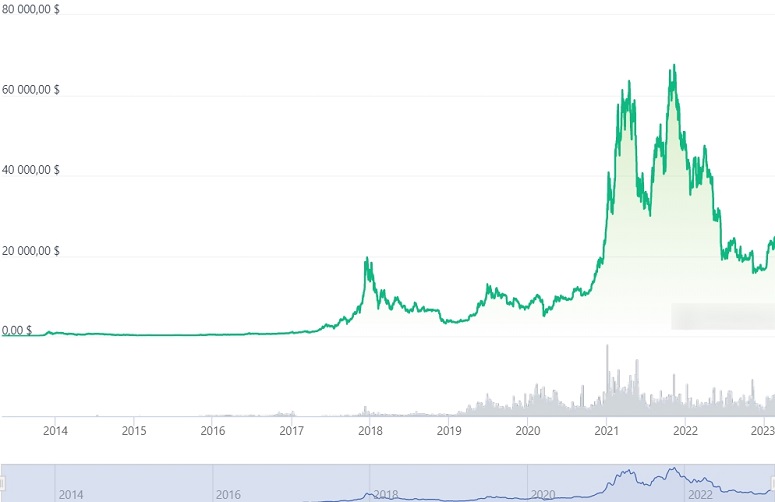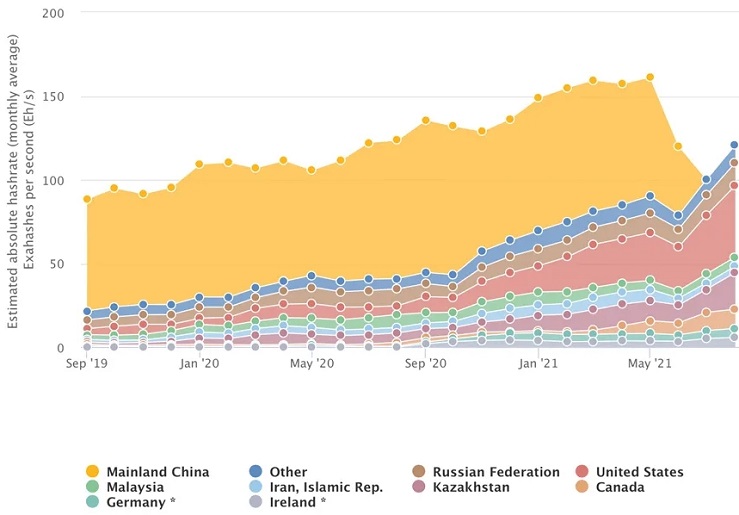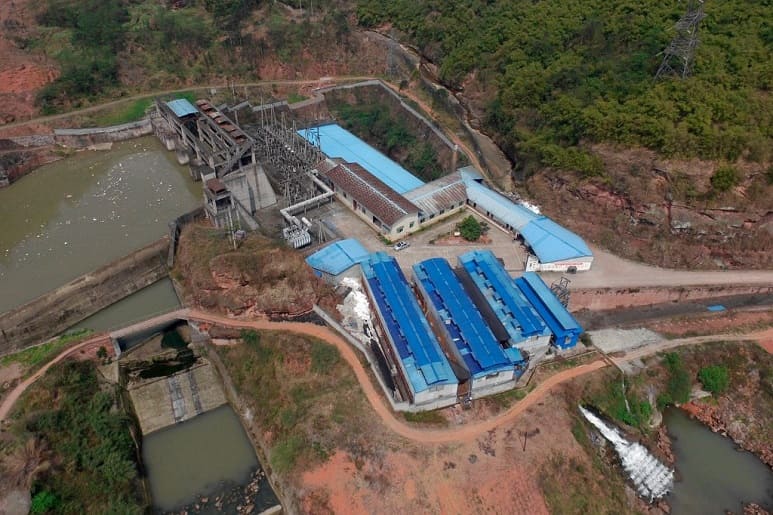In April 2021, the price of bitcoin reached $62 thousand. However, in May, the asset lost 50% of its value. The reason was the ban on cryptocurrency mining by Chinese regulators. Regional authorities ordered to close enterprises in 5 provinces rich in coal or hydropower. Mining became illegal in China. Users started looking for alternatives.
Banning mining in China
The PRC was the leader in global cryptocurrency mining. However, in 2021, the government of the largest country by population stepped in to combat the mining of digital coins.
This is not the first time China has tried to control the cryptocurrency sector. In late 2013, regulators banned banks from accepting and trading bitcoins. In 2019, the People’s Bank of China (PBOC) announced that it would crack down on digital assets.
The main reason for banning coin mining is massive energy consumption. Chinese miners use large amounts of coal. This contributes to global warming. In addition, the country is facing a serious crisis. The demand for electricity began to outpace the development of renewable sources. Some industries have experienced power outages and others have been restricted from using electricity. This has had an impact on manufacturing.
Regulatory policies
The crackdown on digital assets intensified in May 2021. Regulators’ policies have been tough. Government agencies (Central Bank, Ministry of Finance, Tax Administration and others) started working together to stamp out “illegal” cryptocurrency activities.
5020 $
bonus pre nových používateľov!
ByBit poskytuje pohodlné a bezpečné podmienky na obchodovanie s kryptomenami, ponúka nízke poplatky, vysokú úroveň likvidity a moderné nástroje na analýzu trhu. Podporuje spotové a pákové obchodovanie a pomáha začiatočníkom aj profesionálnym obchodníkom vďaka intuitívnemu rozhraniu a návodom.
Získajte bonus 100 $
pre nových používateľov!
Najväčšia kryptoburza, kde môžete rýchlo a bezpečne začať svoju cestu vo svete kryptomien. Platforma ponúka stovky populárnych aktív, nízke poplatky a pokročilé nástroje na obchodovanie a investovanie. Jednoduchá registrácia, vysoká rýchlosť transakcií a spoľahlivá ochrana finančných prostriedkov robia z Binance skvelú voľbu pre obchodníkov akejkoľvek úrovne!
The People’s Bank of China stated that digital assets should not circulate in the markets as traditional currencies. The State Development and Reform Committee of the People’s Republic of China (NDRC) then published a draft law making mining an illegal activity in China. It also states that local authorities must identify digital asset transactions and stop government and tax support for coin mining projects. This decision is based on the following factors:
- China is striving to become an environmentally friendly country. Mining poses a serious threat by increasing energy consumption. Experts estimate that it could lead to 130 million tons of carbon emissions by 2024.
- Transactions with digital assets contribute to the withdrawal of money from the country. In addition, fraudsters are actively using cryptocurrency to launder money, which disrupts the financial system.
Impact of the ban on the crypto industry
Large-scale restrictions on Chinese mining have caused Bitcoin hashing rates to hit a six-month low. The PRC has long been the epicenter of the industry, accounting for 65-75% of Bitcoin mining capacity. After the ban, China’s share fell to 55% as miners shut down their equipment.
The harsh crackdown on cryptocurrencies affected the entire industry and gave the U.S. the opportunity to forge ahead, becoming the world’s largest Bitcoin miner. Kazakhstan also proved to be one of the top regions in terms of equipment capacity.
However, the figures quickly returned to May levels. The total hashrate increased by about 113% in 5 months. The network fully compensated for the losses. Miners who did not have the resources to move started mining cryptocurrency underground.
Bitcoin price
Despite the fact that miners are the most affected party, they are not the only ones who suffer losses. Traders and investors have also suffered losses. After the cryptocurrency ban, the price of bitcoin fell by almost 50% from its peak.

Clandestine Chinese mining farms
The Chinese government banned bitcoin mining in May 2021. Many miners fled China, taking their farms with them. In July 2021, the hashrate dropped to zero. However, users who did not have the opportunity to leave the country remained. The rates quickly recovered to 22.3%.

According to the Cambridge Center for Alternative Finance (CCAF), underground mining has formed in the country. Experts believe that the temporary lull during the summer represented the period it took for miners to prepare farms and build hosting facilities.
Some users began taking power from sources such as hydroelectric plants in the southern province of Sichuan. Others have divided their mining operations into smaller farms across the country that authorities are less likely to notice.
How miners are tracked in China
Special organizations have begun monitoring control systems for irregular electricity use. The authorities are especially checking research institutes and data collection centers. This is due to the fact that such organizations enjoy reduced electricity rates.
Most institutions are deliberately opened to disguise illegal mining.
Qihoo 360, a major antivirus vendor, has developed software to track the IP addresses of miners. Through this software, the location of users can be determined.
Autor: Mgr: Saifedean Ammous, odborník na ekonomiku kryptomien.
















